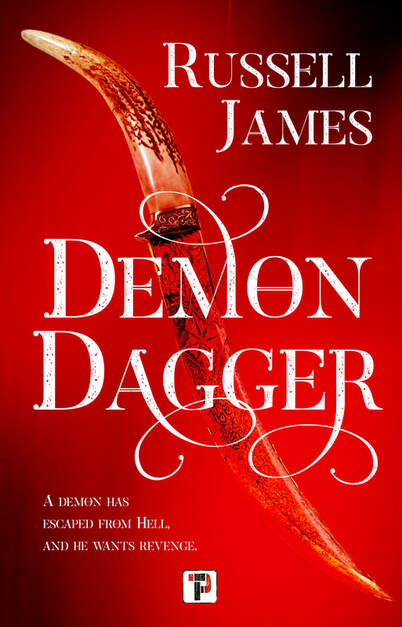 Author Russell James has a brand-new book out today entitled Demon Dagger, and we here at NTG were lucky enough to sit down with Russell to discuss his new book and the craft of creative writing. Nerds That Geek: You are a very established horror author (and reader). How did you get into writing this particular genre? Russell James: Growing up, I watched a lot of TV horror, like Twilight Zone, Outer Limits, and all the old Universal horror movies that played in reruns. Kolchak: The Night Stalker was a big favorite. Then sometime in high school I read Stephen King’s The Stand and was blown away. I’d sit down to read, look up, and hours had passed by in what seemed like moments. I’d never been that captivated by fiction before. That led me straight to more of his books. I am certain that that early example of what splendid horror fiction was capable of influenced my desire to head down that path in my writing. NTG: What inspired your new release DEMON DAGGER? Russell James: I was visiting one of the local Florida theme parks and started thinking about the costumed characters the kids line up to see, the ones in the bright outfits and giant heads with the frozen smiles. You never know if it’s a man or a woman inside. For that matter you don’t know what kind of person is inside. You assume the smiling head covers a smiling face, but does it? Then the horror writer brain went to work. What if it was a demon inside that outfit, ready to prey on people at their weakest moment, when they had let their guard down in the perceived safety of a happy theme park? And why would that demon be there? Well, obviously to get close to the son of a demon hunter, what else? Unlike most story ideas I have, this wasn’t the beginning or the end, it was the middle. So from there I had to discover the demon hunter’s origin story at one end, and the demons’ revenge quest at the other end. NTG: What are you most excited for readers to discover in this novel? Russell James: There are a lot of good, gripping horror scenes throughout, but I’m really proud of the Marvin character the reader meets mid-story. I enjoyed creating all the tortured nuance in his character. I also think that the family dynamic between Drew, his wife, and his son should ring very true for many people reading the novel. NTG: We noticed you’re a military veteran and also do auto restoration. Does your experience in both of these areas inform your writing and/or show up in DEMON DAGGER? Russell James: My military experience was put to good use in DARK VENGENANCE’s helicopter scenes and helped inform the para-military characters that crop up in adventure books like CLAWS and MONSTERS IN THE CLOUDS. It didn’t work its way into DEMON DAGGER, but the automotive skills sure did. As Lincoln trains young Drew for his destiny as a demon hunter, he uses the on-going repairs of a 1970 Chevelle named Gabriella as analogies for Drew about how things work in the demon world. This way Drew also has a good cover story in case his mother asks what he did with Lincoln all afternoon. All the automotive repair explanations are accurate, so readers may accidentally learn something about their own cars between chapters of mayhem. I have my own 1970 Chevelle in the garage, but her name is Valerie. NTG: You’ve been making the rounds in the con and festival circuit this year! Do you have a favorite experience or story from your appearances so far this year? Russell James: Cons are wonderful experiences. The floor is charged with positive energy, the people are wonderful, and a busy day flies by. One of the two great experiences is when someone comes up and says they’ve already read one of my books and they enjoyed it. In Dallas this year, a woman came up, said she’d read Q ISLAND, and then commented on several plot points she’d liked. Then she told me she bought it at a Los Angeles show almost five years ago. I don’t remember what I had for breakfast and she remembered all that? Wow. Another great experience was when a man and his young son came to the table and he told me I was his son’s favorite author. His middle-school kid had read one of the Grant Coleman adventure stories. First, I was blown away that I was anyone’s favorite author. Second, though I’d purposely written those adventures without sex scenes or language to enjoy a broader appeal for the B-movie genre audience, I hadn’t adjusted the writing for younger readers. I never considered kids reading it. The father bought more books from the series and the next week he shared pictures of his son doing a school book report on one of my books. The other rewarding interaction is being able to encourage potential writers to go give it a try. Some come up looking for advice, some just need a little encouragement. Either way I try to send them away with the engine started to begin traveling that long road to getting published. Thank God most of them are setting out much younger than I was when I began my own journey. They’ll have much more time to develop an amazing skill set. NTG: What’s a unique story or genre that you haven’t tackled yet, that you’d love to write? Russell James: I am a real history buff. I wrote some historical horror set during the Civil War called BLOOD RED ROSES that won an international competition for gothic horror. I’d love to write more historical fiction, maybe without any horror elements in it. It’s tough to get a new following in a different genre, though. We’ll see if I ever have the courage to give that a shot. NTG: What’s next for you in late 2022 / 2023 as far as writing, or a personal hobby goes? Russell James: Lots of works in the pipeline. DEMON DAGGER is due in August from Flame Tree Press. TEMPLE OF THE QUEEN will be out soon and is the first in a new series about 1930s antiques dealers Rick and Rose Sinclair, who travel the world looking for lost treasures and end up finding supernatural entities and giant monsters. ATOLL X is the newest Grant Coleman adventure. He will be discovering dangerous ichthyosaurs in the South Pacific and if he’s true to his usual sarcastic form, he will not be happy about it. That book will also debut later in the year. On the automotive front, there is always a backlog of projects out in the garage. NTG: Anything else you’d like to share? Russell James: I have a pretty extensive convention signing schedule and I love to meet readers and authors on the road. Check out my tour schedule at www.russellrjames.com. While you are there, there’s a link on the landing page to sign up for my monthly newsletter that will keep you up to date on all the latest happenings, including those garage projects.
0 Comments
Original Theme Music by Tim Girard Join John as he sits down with actors Roberta Colindrez, Priscilla Delgado, & Kelly McCormack from the new Prime Video series, A League of Their Own! Original Theme Music by Tim Girard Join John as he sits down with actors Molly Ephraim & Saidah Arrika Ekulona from the new Prime Video series, A League of Their Own! Original Theme Music by Tim Girard Join John as he sits down with actors D’Arcy Carden & Melanie Field from the new Prime Video series, ‘A League of Their Own’! Original Theme Music by Tim Girard Join John as he sits down with Executive Producers Will Graham & Desta Tedros Reff from the new Prime Video series, A League of Their Own! Original Theme Music by Tim Girard Join John as he sits down with actors Abbi Jacobson & Chanté Adams from the new Prime Video series, A League of their Own! 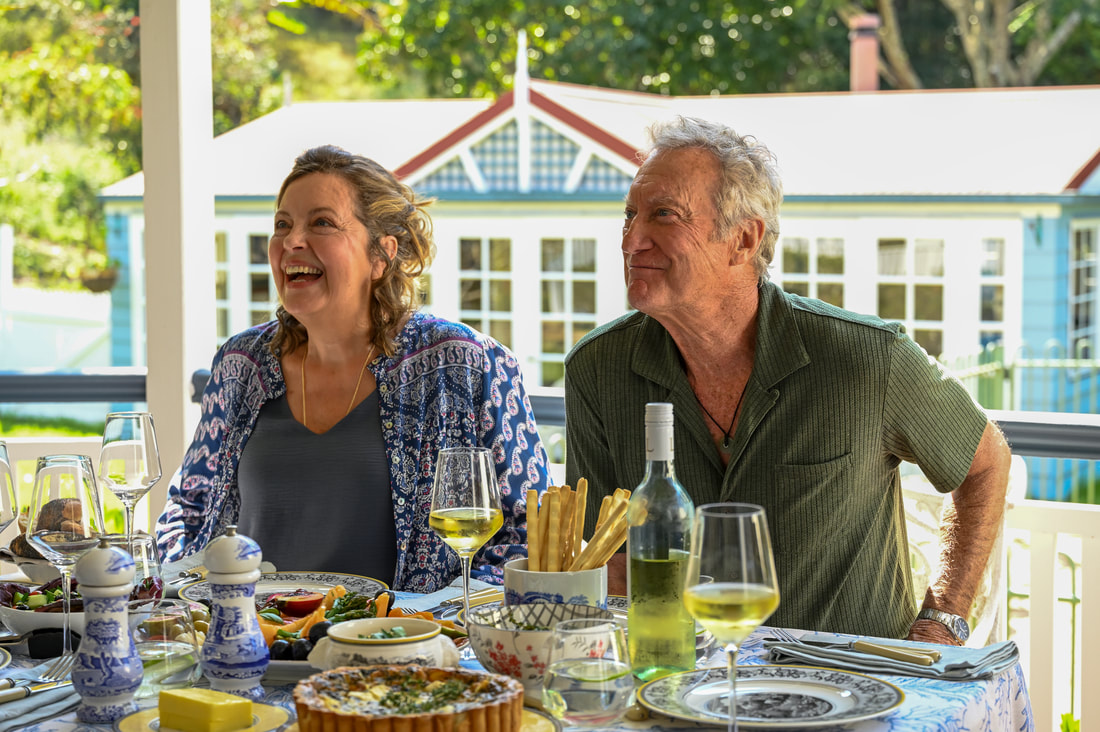 Actor Bryan Brown has basically done it all. He’s been on stage, on the small and big screen and earned an Emmy nomination along the way. Currently, he’s starring in the new Acorn TV series, Darby and Joan, and we here at NTG were fortunate enough to sit down with Bryan to discuss his new role as Jack Darby. John Betancourt: What was it that attracted you to this project? Bryan Brown: Well, I think the nuts and bolts of it got to me when they said look… it’s got an English woman coming out to Australia to look for her dead husband, and a cop who's decided that he's just run away from the world. And they crash in the Outback and have share a car together and I went, “Well, that's a very good, that's a very good premise.” Because you've set up two people that are carrying garbage, carrying stuff that they have to deal with. And they're being forced to be together and neither knows the other. So, I thought that's a great premise. Now the point is, you got to, how do you make them ally? And where do we go with it? But they got me, they got me on that on that initial idea, I thought was a very good, good idea. And particularly for the age range too, you know? Pete Berman's going around in in vans all over the world now. You know, it's a legitimate and a very popular form of enjoying life with the boomer and so I thought you know, it had a relevance. John Betancourt: What was it that attracted you to the role of Jack Darby? Bryan Brown: Well, I like cops. You know, I like cops. I like cops because they deal with the dirty end of town. We we all sit around going, “Oh bloody cops. Look at them.” But if they weren't there, keeping it, keeping the crap away from us, then we'd really be in trouble. So, I like that the world that they have to deal with because it's bloody hard. And I remember going out with a cop in LA. I was doing a show there. And I went out to South Central LA for the night with this cop and he said to me, said, “You gotta retire after about 20 years.” He said, “Because if you keep mixing with the shit, you become the shit.” I remember thinking, wow, “What other game, is that that obvious that a bloke has to say something.?” So, you know, I wasn't going to get into it too deep with him. I thought, that's what you have to carry, mate. You're carrying a darkness that eventually will envelop you if you don't get out of it. You're carrying all the darkness that we avoid. So, I've always found them interesting. Their world very interesting and very difficult. So, and I’ve played a few cops. But this was a cop who… who's running away from the force. So, what's going on? And you know, takes two or three episodes for you start to get into where, what he's dealing with. But so, you know, like, it's a main character and also the age, you know, you're carrying stuff, can you get it resolved, do you want to get it resolved, you're in the shadow of life, all that sort of stuff. All those things are interesting to me. John Betancourt: Now you bring up an interesting angle there. In that, as an actor how do you get into the mindset of carrying that kind of weight? Bryan Brown: Yeah, I just say the words. John Betancourt: (laughs) See! You’re that good! Bryan Brown: No, you know, you allow the script to take you to places, your job is to try and emotionally connect in your own way with whatever those moments are. And where those moments aren't there… you know, whatever, the script allows you to play, some humor or some back chatter or whatever, but you know, you're not someone who's massively effusive all the time, you know, you're carrying stuff. John Betancourt: Now I noticed this series is loaded with themes, the pilot alone has so much to say about loss and grief. What’s the one that resonated with you the most? Bryan Brown: Trying to escape life. You can’t. I find that thing with this thing is like, you've got one character… the lady… whose traveling looking for answers. And you've got the cop, who's traveling to avoid questions. And they're thrown together. Because, you know, he doesn't want anybody asking, and he doesn't want to know about his life. He’s getting away from it. She's going, “I want to know about my life. Has it all been a lie? What is it?” John Betancourt: So, to dig a little deeper into your character, what is it you’d say Jack is searching for in this series? Bryan Brown: Peace. Peace and he thinks he can get it by running away. Which obviously, is it moves along, he can’t. He has to… he has to answer some questions. John Betancourt: What are you hoping the audience takes away from Jack’s journey in this tale? Bryan Brown: With all the things, you just hope an audience understands the character and sort of roots for him, you know? And hopes they find what they're looking for. You hope they get involved with the character. If you watch anything, and you like somebody, you don't walk around the living room going, “I hope he’s alright.” But you know, if you're connected, you go out, you know, you're subconsciously going to hope things work out for that character. I hope they basically, they warm to him and hope the best for him. John Betancourt: Do you think solving crimes again is helping Jack to heal? Bryan Brown: Yeah, I think so. I think that's what she leads him to. I always said that this show, each of them is the other’s rescue dog. They’re both damaged in a way. And the other is the rescue dog. The other one's there to go, “It’s okay. I’m here.” Woof. John Betancourt: (laughs) I cannot wait, to put that to print. So, what did you enjoy most about working on this show? Bryan Brown: Well, I love working with Greta, right? We did a movie together about four years ago. I've known her for 30 years. You know, I've always known her, we’ve been in different situations. We had a chance to do a play together a few years ago, and she hurt her back and couldn't continue. And then we did the movie together. And I just enjoy working with Greta. She's great to work with. She's a really terrific actress. You know, when I can eventually get her to shut up, you know, like, stop talking to me, you know, she loves to chat! (Laughter from Bryan and John) But we you know; we get on great. She puts up with me, which is very good. So, I really enjoyed her, and I enjoy her because I really trust her as an actress. You know, she's really bloody good. She's always right there. And then there was a whole lot of areas of Australia that we're shooting in, in Queensland, that I've never been to. Oh, so I've very I was very keen to and very taken by a lot of the locations that we went to. John Betancourt: That makes sense because you guys have incredible chemistry on screen. Now was that something you need to work to get back into? Or was it just two old friends reuniting? Bryan Brown: A bit like that? I mean, we had done this movie about four years before. One thing we had to deal with though, was the borders were shut on Queensland and New South Wales with COVID. So, I couldn't go back on weekends to see the family, or you know, I was stuck there, everyone was stuck on one side of the border for 17 weeks. I had to do two weeks isolation before we even started, and so those little things added to added to the difficulty that not just the actors had but production had everyone had, you know, dealing with COVID. John Betancourt: What would you say you’re most proud of when it comes to your time on this show? Bryan Brown: Getting through it? (Laughter from Bryan and John) Everyone was in lockdown. You know, I produce as well. But I wouldn't want to be producing during COVID. Because you have no idea if suddenly a lead actor goes, a director goes down. So, and I talked to the producers and like 90%, it's hard enough producing a movie. It's hard enough. But 90% of their work was all the stuff to do with COVID, the tests that had to go on, the stuff to send to the government, all that sort of stuff. So quite truthfully, and in a funny way, yes, getting through it. I think everyone was like that because at any time you could go, “we got to stop for two weeks, that actor has gone down or that director’s gone down” all that. So, I think it was one of those things of, even with COVID, life has to go on. Like, yeah, it is the time of COVID. Let's get it right. John Betancourt: No, it really is. It’s been two years, and here we are, still talking about it! So, I get that, you made it and well… I only have one question left for you today. What are you most looking forward to audiences experiencing when they watch the show? Bryan Brown: Well, I think one of the things is, they’ll get to experience some fabulous parts of Australia. It's a very beautiful journey for an audience. And then I hope they just sort of, I hope what they do is they, enjoy how these two characters need to restart their life. You know, how they go on the journey with them on that. This interview has been lightly edited and condensed. 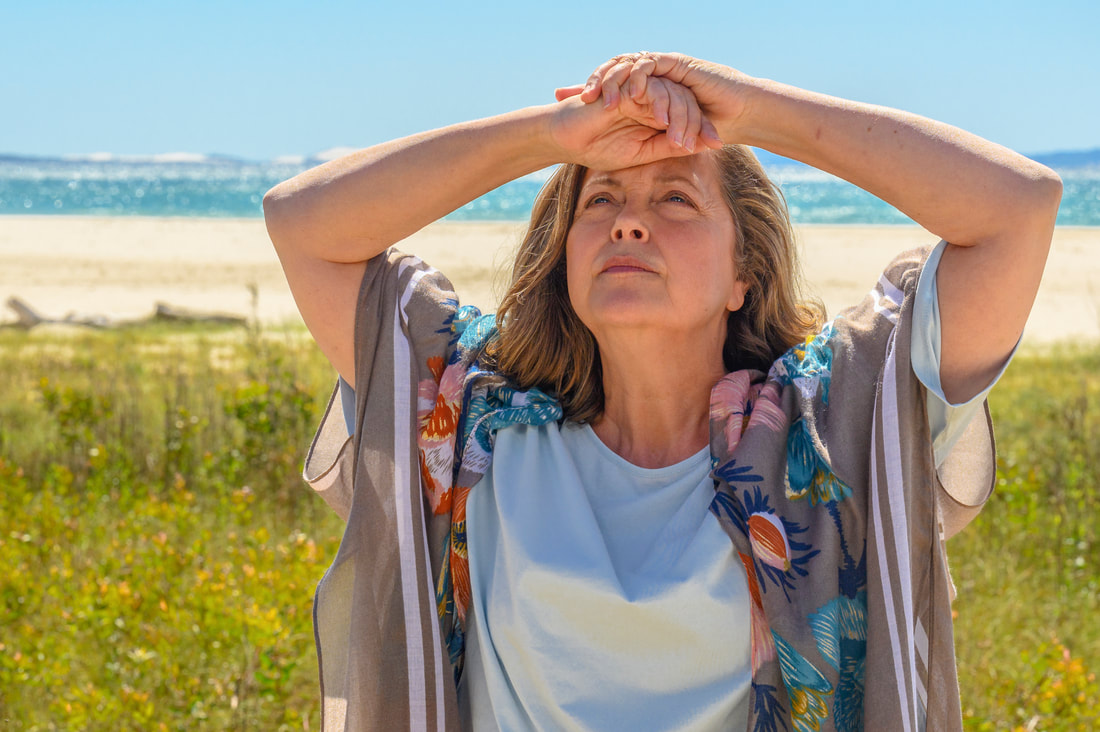 Greta Scacchi is a highly accomplished, Emmy Winning Actor, that has graced the stage, the small and silver screen throughout her incredible career. Currently… she is starring as Joan Kirkhope in the new Acorn TV series, Darby and Joan, and we here at NTG had the distinct honor of speaking with Greta about her new role and show. John Betancourt: What was it that attracted you to this project? Greta Scacchi: Well, first of all, it was just lovely to get offered a lead role, opposite Bryan Brown, who I love, he's become a friend. And we've worked together a couple of times before and work together very easily and joyfully. And to play all the characters who are in the center of the story, whose desires, whose troubles, whose thoughts, whose response to things, is the main thrust of the story is quite rare. You know, it's been a long time. As I've gotten older, you're offered roles that are just an extension of a younger character in some way. The focus is on the younger, the younger roles, and you find yourself limited by the fact that you are playing older as you are sort of playing something that is observed from a younger gaze. And so, to be in the shoes of the characters whose gaze, we get to see, is rare, and it was very appealing to me. And it was very liberating as well because it meant that I could explore all facets of the personality and express how she is in different situations, you know, she's not just there as a two-dimensional tool for somebody, for somebody else's character, she's very much a driving force. And that's, that's rare. And I think, with these two characters for, for me and Bryan playing Jack and Joan, they both have troubles, they both have actually quite extreme trauma that they have just suffered. They're both in a post-traumatic state emotionally. But they've had enough years of experience to know that they must keep going. And they find their ways to keep themselves driven and optimistic. And they use each other as well to help them along. And they both share a spirit of adventure and energy, a drive to pursue the truth and to see that justice is done. And through that, we get to see a very, very fully rounded character for each of them. And we get to see this as they learn to trust each other more and enjoy each other's company. We get… we develop a very nice, enjoyable banter between us, and I think that's one of the key attractions to the writing into this series. John Betancourt: What was it about Joan that jumped off the page for you? Greta Scacchi: I like the range of emotions. I mean, she can be angry, she can be stroppy, she can be tearful, she can be outraged. She can be excited about her environment; she can be surprised by how things even in a crisis will appeal to her, will warm the cockles of her heart. And she has a lot of warmth and spirit and humor. I think that's it; I think the youthful spirit that they both have, it's nice to see. Because that is true and very often in playing an older character, you are restrained by the need to, to be performing an older character. And so, you're restricting the expression and the spirit that older people do have, regardless of what younger people might think. John Betancourt: Now if I could, I’m going to circle back on something you said a moment ago. About how they kind of soldier on and push ahead. Because that’s a very different take on grief, especially in popular media these days. So, what I’m wondering, is what you hope audiences take away from Joan’s approach to how she is dealing with her grief? Greta Scacchi: I think that she's… she's ready to throw herself in. I mean, the premise is that her husband has mysteriously died in Australia. She didn't even know; he was in Australia. They were a happy couple living in London with a grown-up daughter. And he was going off on a trip to Spain as usual. And then she gets the message that he’s died suddenly. And she has to go and identify the body, and it's… it's in Queensland. And she… she does that, she takes him home; they bury him. And then it becomes the questions of what? What it was that he was doing? Why was he lying to her? How bad? How, how much was he hiding? And how, how bad could it have been? Was he a criminal? Was he a murderer? Or was he murdered? All these questions, she throws herself in against her daughter's wishes. And she goes out there fearlessly driven by her need to know what happened. And so, she will, in her early 60s, go off to a country she doesn't know and drive out into the bush in a camper van. It's really very bold. And I think it's not unusual for this to happen, because I can tell you I've got friends who've done that. One actress who's in the piece. Karen Fairfax, who's in the first episode. She's a girl that I knew in Melbourne in our youth. And she now travels around in a little van, by herself, all over Australia. And a lot of people once they're in their late 60s, early 70s. Once they retire, they do the circuit, they do the whole circumference of Australia, and of course they're called grey nomads, there's plenty of them, you have them in the States as well. And it's a feeling that once you've retired, you can actually be useful again and you can actually do the things that you'd always dreamed of doing. And if you don't do them now, then it's not gonna happen. So, you do them and I think that there's a lot of older people who have tapped into this realization and that they still have the strength. They're still healthy enough that they can go on crazy adventures, and they do. John Betancourt: That is so true. My parents love to hop in their camper and head to Yellowstone in the summer months. Greta Scacchi: Of course. They're enjoying nature, they're enjoying the spontaneity of changing plans, staying a day or two longer or moving on to the next place. It's a wonderful, liberating feeling. And I guess this is this is what we see with Darby and Joan, they, they have that possibility of doing things impulsively. And sometimes they share the same instinct, the same trigger to do something, even their conversation sometimes crosses over where not everything has to be said because they understand each other. And that's a sign of, of two very lively spirits. John Betancourt: Would you say it’s a bit of a chance for them to heal, while they’re on the road? Greta Scacchi: Yes, of course, sometimes… sometimes their focus on what they stumble upon, the new characters, the new mysteries, and what's going on around them is a distraction. It's a way that they can put something right, they can weed somebody else's garden, if they can't weed their own, you know, and that's a good message too, I suppose… is, you know, when you're in the doldrums, and you have a few problems, and it's frustrating, and you don't know how to get out of it, it's a good idea to look out of outside yourself at other things that are going on around you. Where there's actions that you can choose to make that could help. Help a situation get better. John Betancourt: Last question I have for you today. What would you say you’re most proud of when it comes to your time on this show? Greta Scacchi: Well, it was a very different sort of thing to what I'm used to as a type of working situation. You know, when you're doing TV, it's much faster, you get a lot more minutes done each day of the final film than, than you would normally on a film. And where a film might take seven weeks or nine weeks to make a feature film, this was more like four months, non-stop consistently, working every day. And I just love that. I love going to work with the crew and being part of you know, the hard labor of a crew, of a film crew. It's a wonderful team, they're very supportive of each other, particularly in Australia, where there's not the same hierarchical feeling that there is, the closer you get to Hollywood, where it seems, they condone this idea that some people are of more value than others. Whereas in Australia, it's much more, every man is equal. And it's a good atmosphere to work in. So, we got through it, we got through it sometimes with you know, all sorts of weather problems and those sorts of difficulties, but also, scripts coming at the last minute and lots of lines to learn on the hop. And that contributed to a sort of different style than I'm used to. Where there was a lot of spontaneity and last-minute creativity in throwing ourselves into embodying the characters, and that makes it in a way less, less crafted, less manicured, and closer to something that is your own form of expression, your own spirit and wit. This interview has been lightly edited and condensed for clarity. |
Archives
April 2025
|
|
© 2012-2025, Nerds That Geek LLC.
All Rights Reserved. |
uWeb Hosting by FatCow

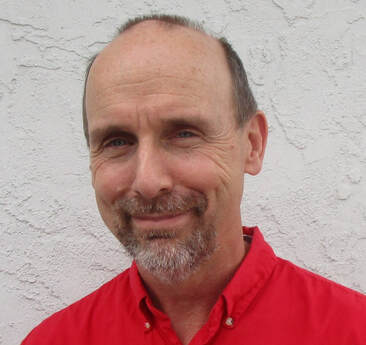
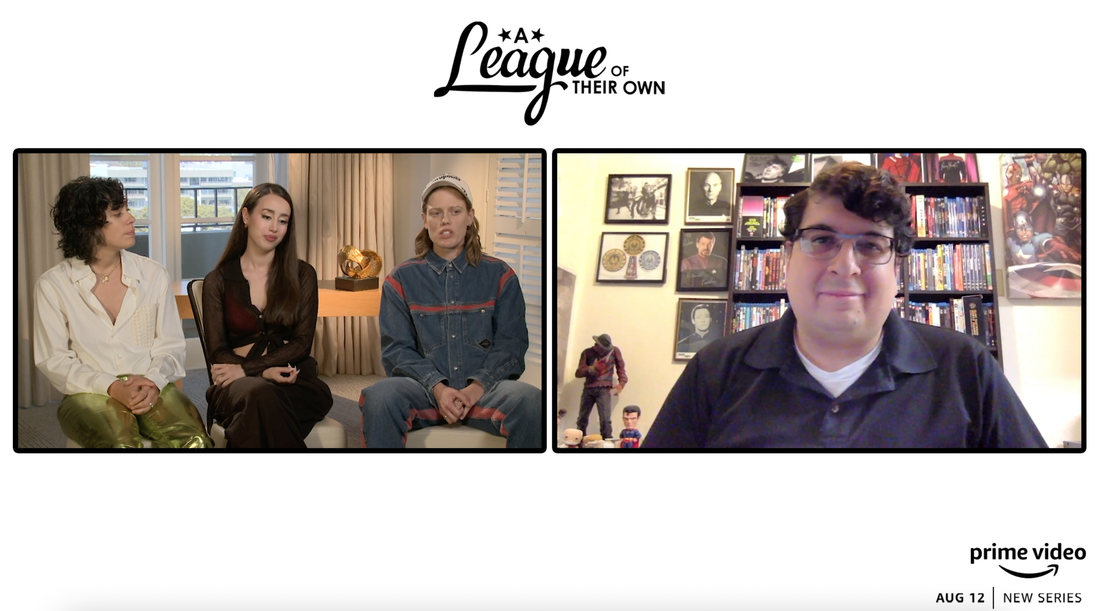
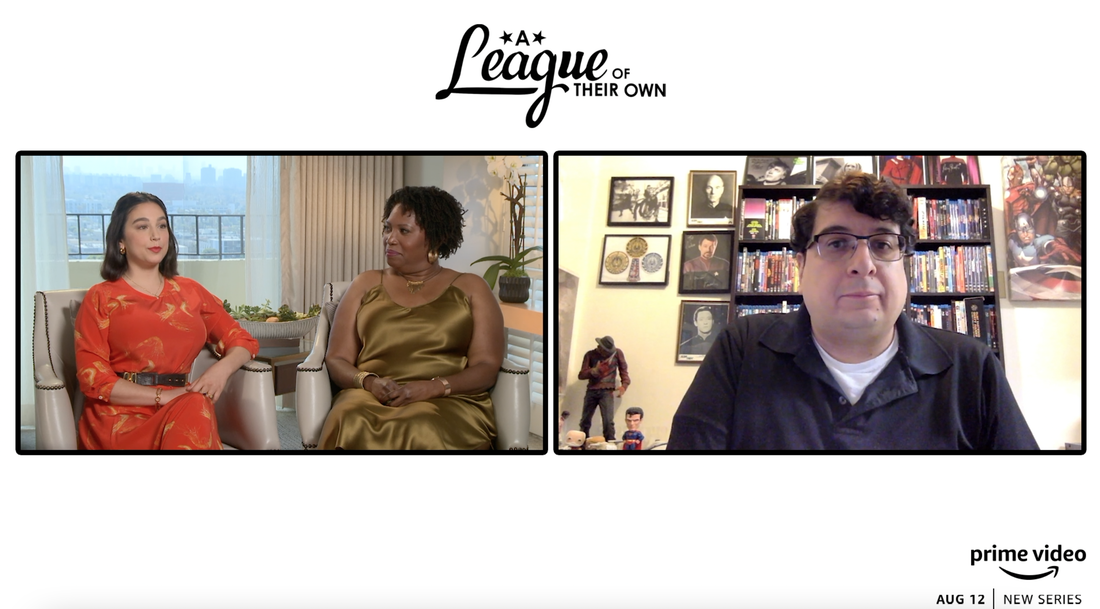
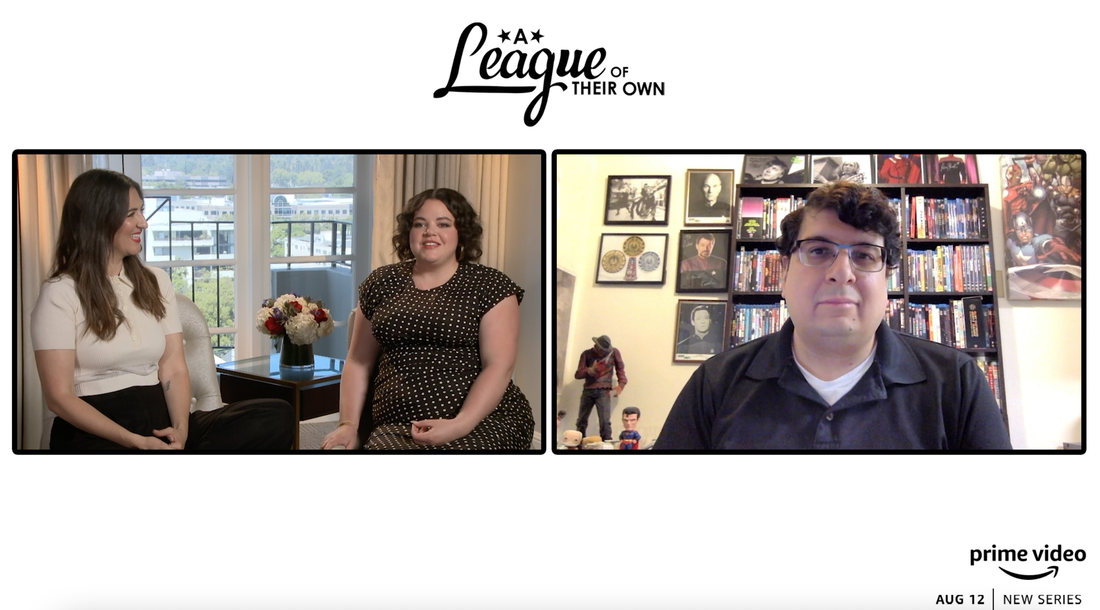
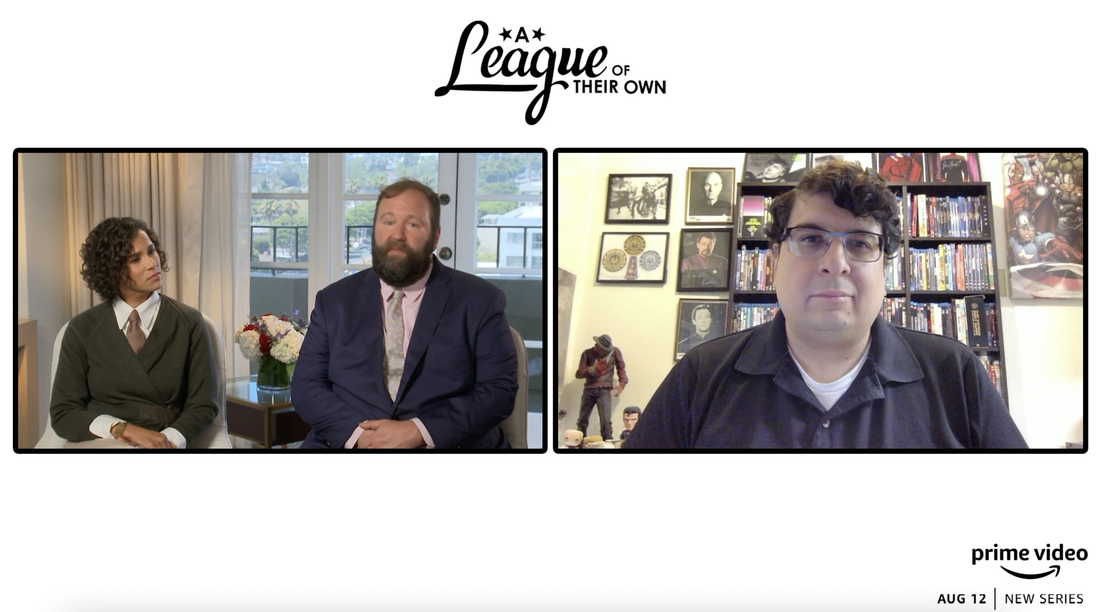
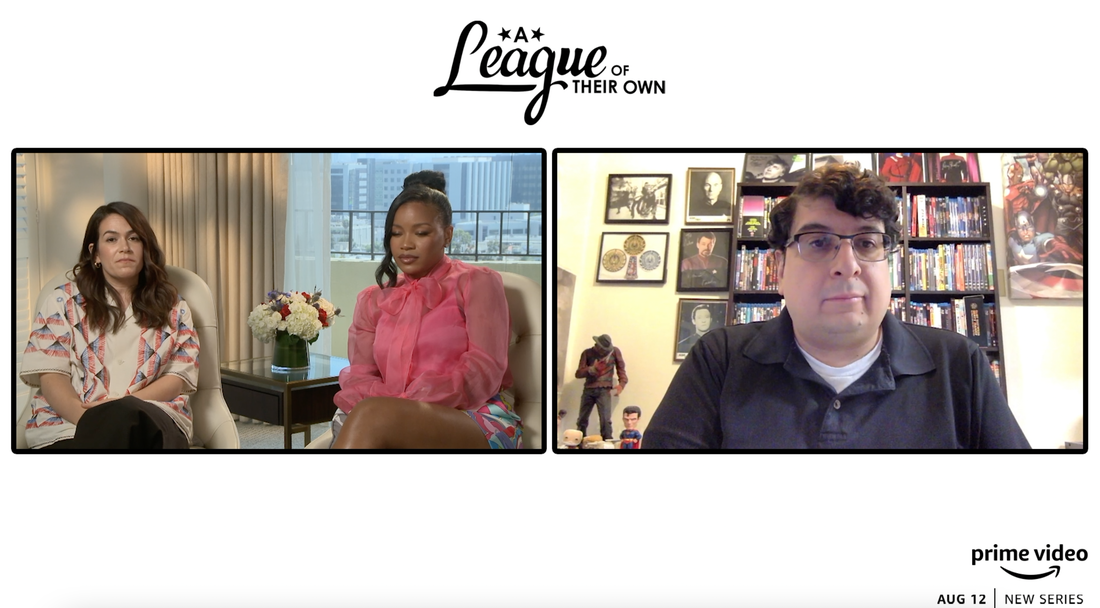
 RSS Feed
RSS Feed